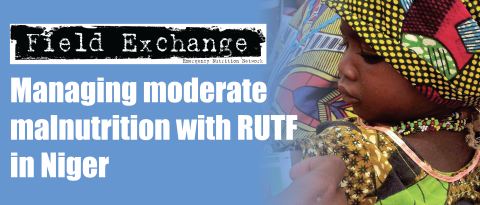Joint UN Statement on Community-based Management of Severe Acute Malnutrition

A Joint Statement by the World Health Organization (WHO), the World Food Programme (WFP), the United Nations System Standing Committee on Nutrition (UNSCN) and UNICEF on Community-based Management of Severe Acute Malnutrition has been released.
The joint statement describes how severe acute malnutrition remains a leading cause of death in children under five years of age. Until recently, treatment has been restricted to facilitybased approaches, greatly limiting its coverage and impact. New evidence suggests, however, that large numbers of children with severe acute malnutrition can be treated in their communities without being admitted to a health facility or a therapeutic feeding centre.
The community-based approach involves timely detection of severe acute malnutrition in the community and provision of treatment for those without medical complications with ready-to-use therapeutic foods (RUTF) or other nutrient-dense foods at home. If properly combined with a facility-based approach for those malnourished children with medical complications and implemented on a large scale, community-based management of severe acute malnutrition could prevent the deaths of hundreds of thousands of children.
The joint statement also addresses community based management in the context of high HIV prevalence and given the overlap between malnutrition and HIV infection and AIDS, recommends strong links between community-based and AIDS programmes.
Investing in prevention of malnutrition is essential and interventions may include investing in high quality food and health care, support for exclusive breastfeeding for six months and improved complementary feeding practices for children 6-24 months. At the same time, treatment is urgently needed for those already malnourished. The statement states the community-based approach should be added to the list of cost-effective interventions to reduce child mortality.
The joint statement lists what countries can do, through adopting national policies and programmes that ensure national protocols for the management of severe malnutrition have a strong community based component; and by ensuring that coverage, training at all levels, and referral systems are addressed. In addition, countries can act by providing the resources needed for management of severe malnutrition and by integrating the management of severe malnutrition with other health activities.
The statement details how WHO, WFP, UNSCN and UNICEF will support country activities, for example by mobilising resources to support implementation of recommendations and facilitating local procurement or production of RUTF.
The statement concludes with a technical annex on RUTF, including referenced information on producing RUTF locally1.
The joint statement is available in English and French and can be found at: http://www.who.int/nutrition/topics/statement_commbased_malnutrition/en/index.html
1Available at http://www.who.int/child-adolescent-health/New_Publications/NUTRITION/CBSM/tbp_4.pdf).
Imported from FEX website


